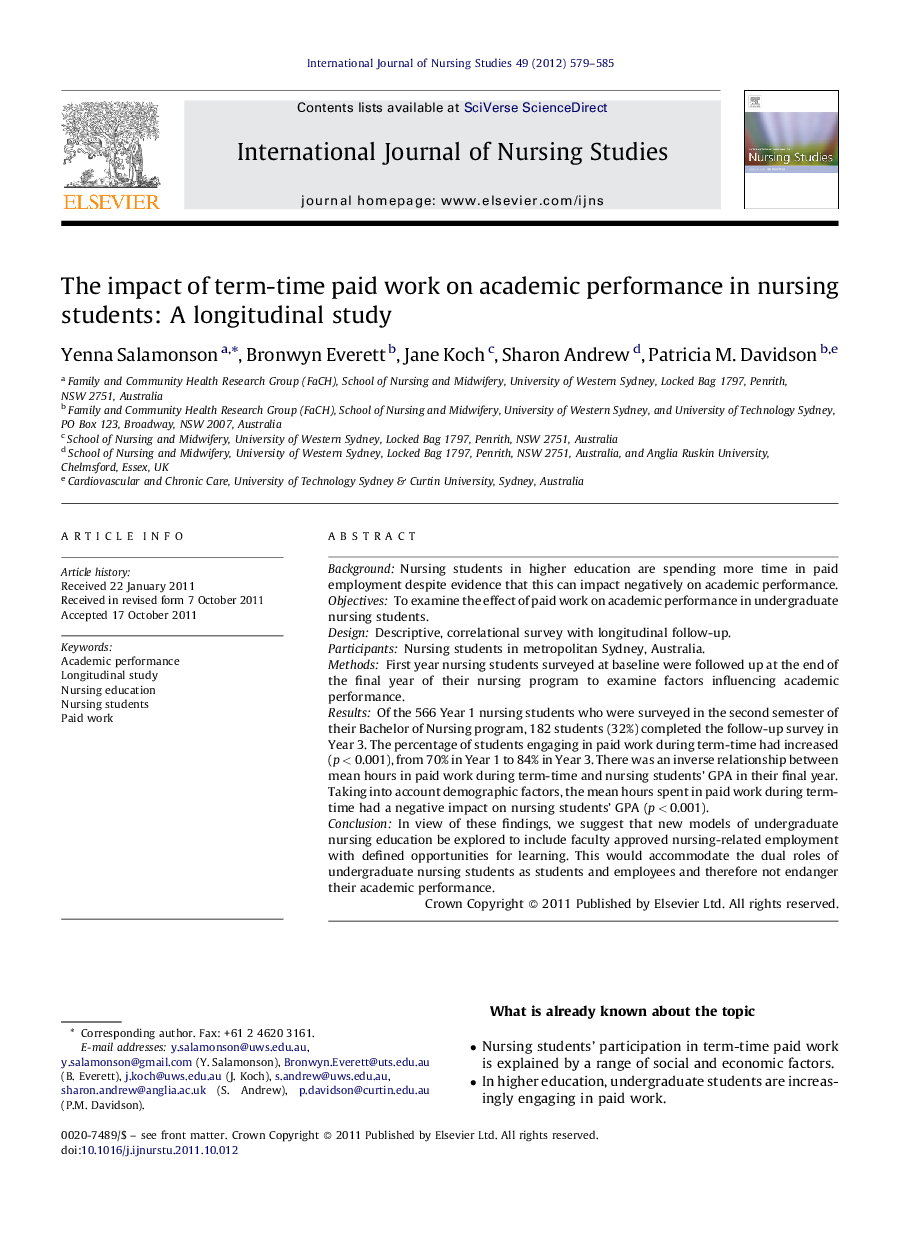| Article ID | Journal | Published Year | Pages | File Type |
|---|---|---|---|---|
| 1076467 | International Journal of Nursing Studies | 2012 | 7 Pages |
BackgroundNursing students in higher education are spending more time in paid employment despite evidence that this can impact negatively on academic performance.ObjectivesTo examine the effect of paid work on academic performance in undergraduate nursing students.DesignDescriptive, correlational survey with longitudinal follow-up.ParticipantsNursing students in metropolitan Sydney, Australia.MethodsFirst year nursing students surveyed at baseline were followed up at the end of the final year of their nursing program to examine factors influencing academic performance.ResultsOf the 566 Year 1 nursing students who were surveyed in the second semester of their Bachelor of Nursing program, 182 students (32%) completed the follow-up survey in Year 3. The percentage of students engaging in paid work during term-time had increased (p < 0.001), from 70% in Year 1 to 84% in Year 3. There was an inverse relationship between mean hours in paid work during term-time and nursing students’ GPA in their final year. Taking into account demographic factors, the mean hours spent in paid work during term-time had a negative impact on nursing students’ GPA (p < 0.001).ConclusionIn view of these findings, we suggest that new models of undergraduate nursing education be explored to include faculty approved nursing-related employment with defined opportunities for learning. This would accommodate the dual roles of undergraduate nursing students as students and employees and therefore not endanger their academic performance.
